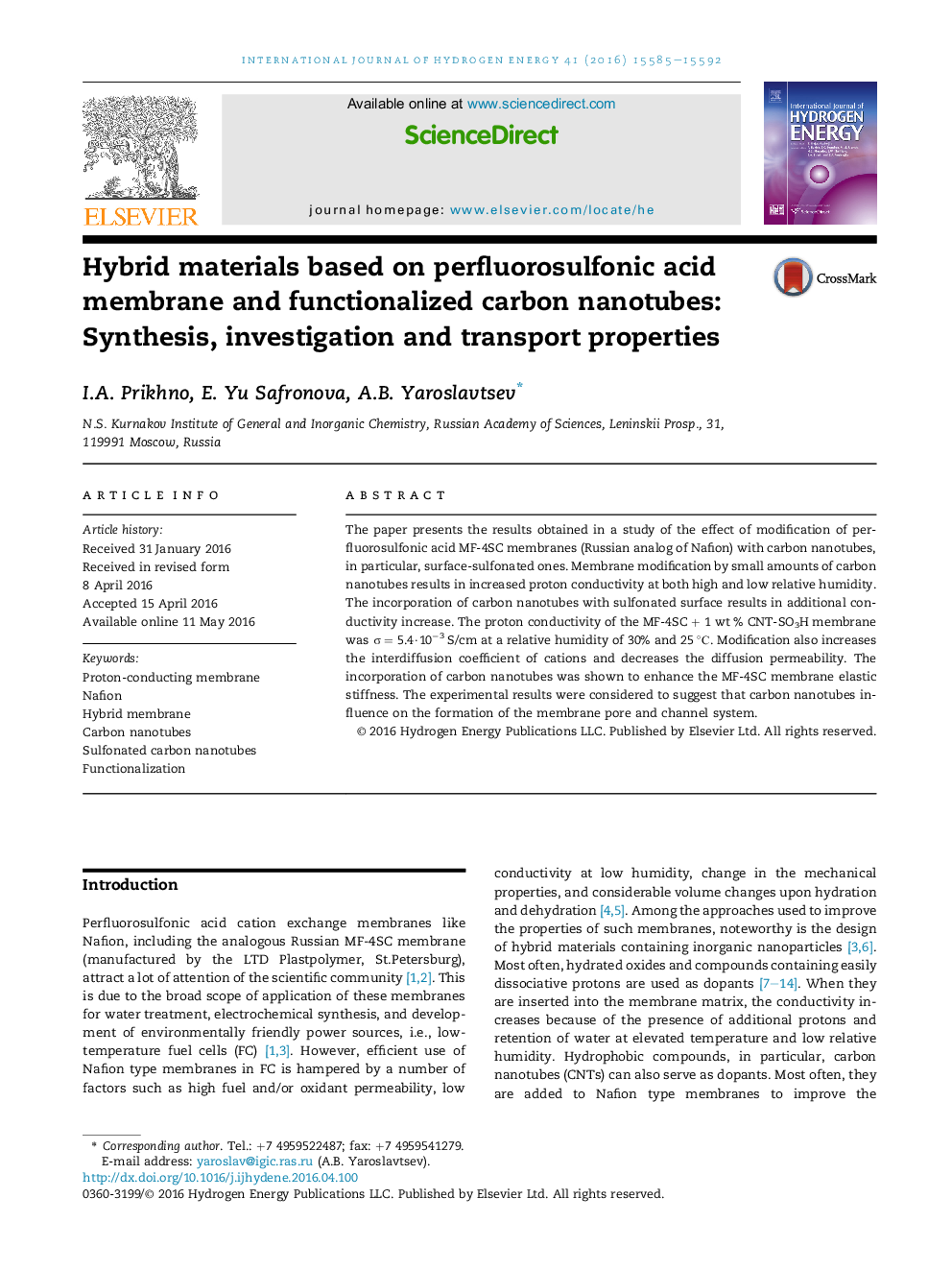| Article ID | Journal | Published Year | Pages | File Type |
|---|---|---|---|---|
| 1270437 | International Journal of Hydrogen Energy | 2016 | 8 Pages |
•Hybrid materials based on Nafion type membrane and MWCNTs were obtained.•Modification leads to increase in proton conductivity.•Selectivity of hybrid membranes is increased as compared with the initial sample.
The paper presents the results obtained in a study of the effect of modification of perfluorosulfonic acid MF-4SC membranes (Russian analog of Nafion) with carbon nanotubes, in particular, surface-sulfonated ones. Membrane modification by small amounts of carbon nanotubes results in increased proton conductivity at both high and low relative humidity. The incorporation of carbon nanotubes with sulfonated surface results in additional conductivity increase. The proton conductivity of the MF-4SC + 1 wt % CNT-SO3H membrane was σ = 5.4·10−3 S/cm at a relative humidity of 30% and 25 °С. Modification also increases the interdiffusion coefficient of cations and decreases the diffusion permeability. The incorporation of carbon nanotubes was shown to enhance the MF-4SC membrane elastic stiffness. The experimental results were considered to suggest that carbon nanotubes influence on the formation of the membrane pore and channel system.
Graphical abstractFigure optionsDownload full-size imageDownload as PowerPoint slide
